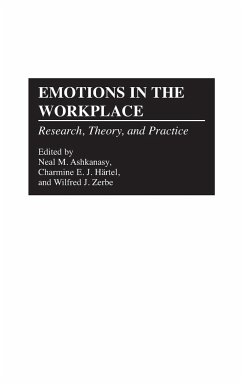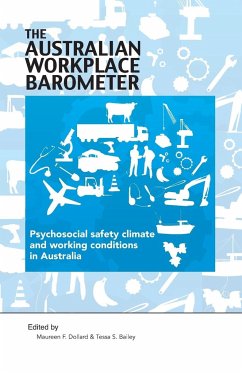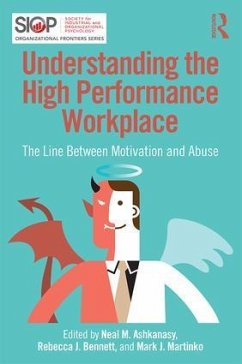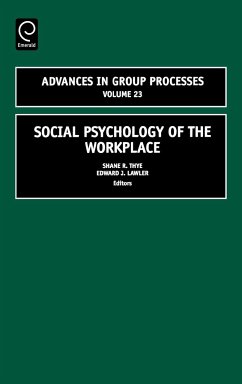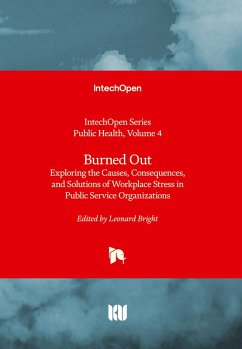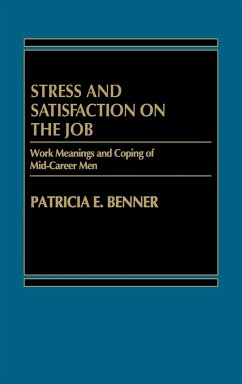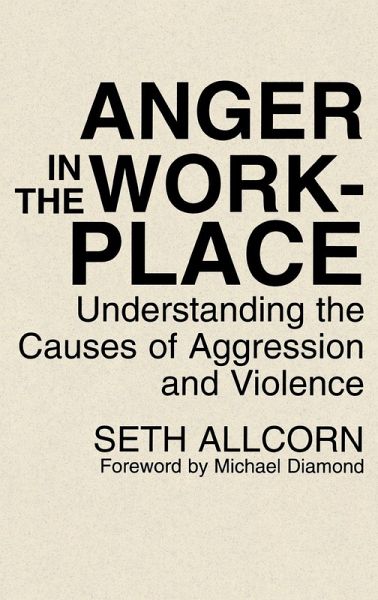
Anger in the Workplace
Understanding the Causes of Aggression and Violence
Versandkostenfrei!
Versandfertig in 1-2 Wochen
87,99 €
inkl. MwSt.

PAYBACK Punkte
44 °P sammeln!
Allcorn explores what it means to feel angry at work. Anger has its origins in anxiety that arises from feeling frustrated, humiliated, and threatened at work. Anxiety creates a biological and psychological readiness to act that is guided by whether it is acceptable to feel angry at work. Employees act responsibly if they feel that their anger is acceptable. They may also act in ways that are destructive to self, others, and the workplace if they feel that being angry is not acceptable. Managing the development of anger and its expression in the workplace is an important aspect in designing a ...
Allcorn explores what it means to feel angry at work. Anger has its origins in anxiety that arises from feeling frustrated, humiliated, and threatened at work. Anxiety creates a biological and psychological readiness to act that is guided by whether it is acceptable to feel angry at work. Employees act responsibly if they feel that their anger is acceptable. They may also act in ways that are destructive to self, others, and the workplace if they feel that being angry is not acceptable. Managing the development of anger and its expression in the workplace is an important aspect in designing a better workplace. The book defines anger and aggression by synthesizing biological, psychological, and social perspectives. The social acceptability of anger and the fear that it interferes with judgement and results in aggression are discussed. Sex and gender-based differences in the experience of and expression of anger and aggression are explored. Learning to cope with anger is discussed. If feeling angry is not avoided then owning one's anger, thinking it through, and acting upon it constructively are important. Anger and aggression can contribute to innovation and productivity. The workplace is, however, a contributor to feeling angry because it promotes feelings of helplessness, persecution, alienation, and worthlessness. Hierarchical organization, power and authority relations, leadership styles, and organizational culture contribute to the development of these feelings. Desires for attachment and the fear of abandonment and desires for autonomy and fear of engulfment in the workplace must be managed to avoid anger. The book concludes by reviewing the relationship between anger and organizational dynamics.





